While no driver ever wants to get pulled over, citations may be part of the solution to combating traffic fatalities. “Tickets and red-light cameras work,” says Jonathan Adkins, executive director of the Governors Highway Safety Association (GHSA). “You get a ticket, it ruins your day. You tell everyone, and it helps change behavior,” he explains.
That’s important, because Wayne Ziese, law enforcement liaison for the California Office of Traffic Safety, says the most likely factors behind collisions are behavioral—driving at an unsafe speed for conditions and driving while distracted, to be specific.
“People don’t think of speeding the way that they think about some other hazardous driving behaviors,” says Robert L. Sumwalt, Chairman of the National Transportation Safety Board. “Unlike other crash factors such as alcohol impairment or unbelted occupants, speeding has few negative social consequences associated with it, and does not have a leader campaigning to increase public awareness about the issue at a national level.”
By The Numbers
Speeding:
- Speed was a factor in 32% of fatal crashes that involved teen drivers in 2016 and 26% of all traffic fatalities in 2017, according to NHTSA.
- A self-reported 83% of drivers believe speeding is a safety concern, yet 64% say they are comfortable speeding, according to the National Safety Council (NSC).
- More than 50% of drivers reported driving 15 mph over the speed limit on a freeway and 47.6% reported driving 10 mph over the speed limit on a residential street, according to this 2017 study.
- A pedestrian hit by a vehicle traveling 20 mph has a 5% chance of fatality. This increases to 45% at 30 mph, and 85% at 40 mph, according to NHTSA. Pedestrians account for the largest proportion of traffic fatalities recorded in the past 25 years; in 2017, 5,984 pedestrians were killed in motor vehicle crashes in the U.S., according to GHSA.
Distracted Driving:
- At any moment during the day, an estimated 542,000 drivers around the country are using handheld cell phones, according to NHTSA.
- An estimated 4 million out of the 11 million crashes that occur in the U.S. annually involve some level of distraction, according to this study.
Red-Light Running:
- Red light cameras reduced the rate of fatal crashes involving red-light running by 21% and the overall rate of fatal crashes at signalized intersections by 14%, according to a study by the Insurance Institute for Highway Safety (IIHS).
Seatbelts:
- Seatbelt use reduces the risk of fatal injury to drivers and passengers by 45-60%, according to the IIHS.
- Currently, 34 states plus the District of Columbia have “primary enforcement” laws, meaning a police officer can stop and cite a motorist solely for not using a seatbelt. States that went from “secondary enforcement” (where an officer can only issue a seatbelt citation if they’re pulling the motorist over for another violation first), to “primary enforcement” saw a 14% increase in observed seatbelt use, according to this study.
The bottom line? The best way to avoid getting a traffic ticket (and more importantly to avoid potentially fatal accidents) is to buckle up, drive at a safe speed, obey the traffic laws, and minimize distractions. (Take our distracted driving quiz to test your knowledge!)
Need to brush up on your safe-driving skills? You could earn an insurance discount if you take a defensive driving class. See all the ways you could save at GEICO’s discounts page.
Next article: 5 Ways To Be A Defensive Driver
By K. Bothwell

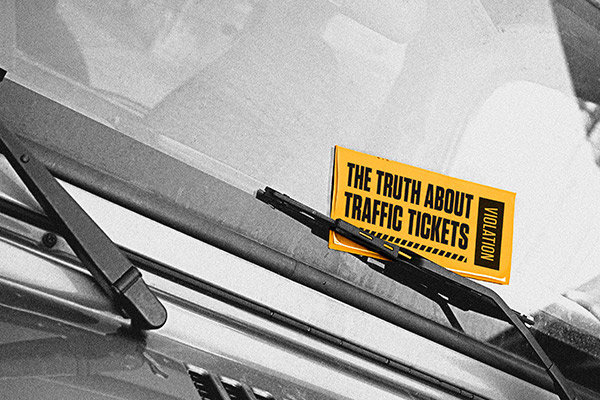


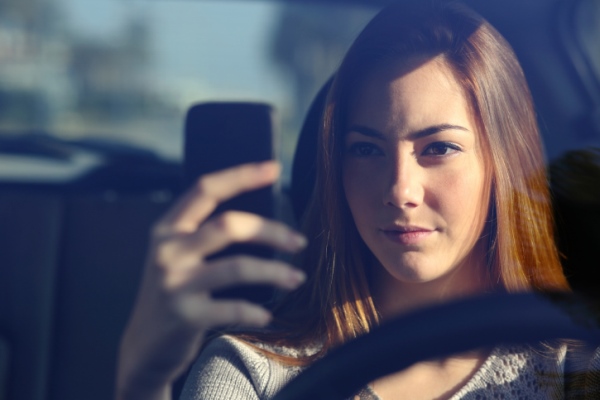

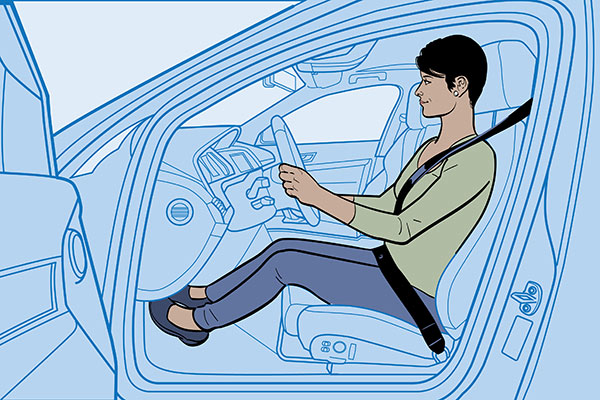
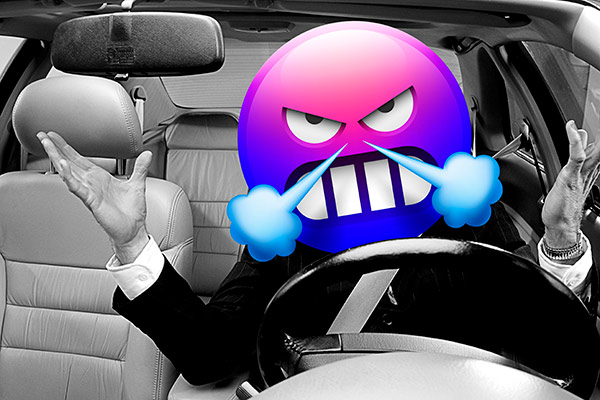
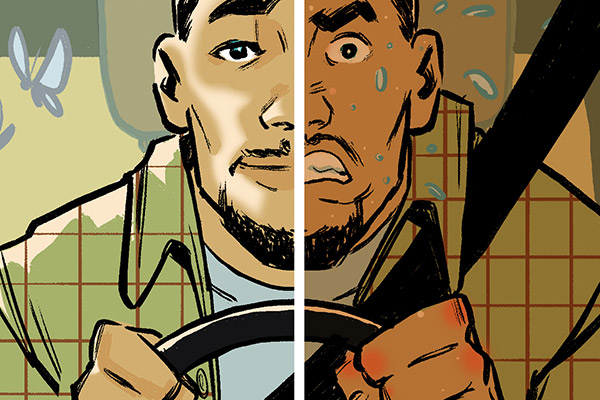

Evan T Washington says,
What an informative read.
John says,
I live in Florida and I got a red light violation. Would there be any penalty to my insurance? Should I get a lawyer or would it even matter?
Edward Shanbacker says,
The is absolutely NO science to suggest that hand held phones are more dangerous than hands free… why GEICO perpetuates this myth is a mystery to me. Talking on the phone, either hand held or hands free, is distracted driving. Laws outlawing hand held phones while driving are merely the appearance of addressing a problem, not a real solution. Something public policy makers do all too frequently.
Gi Jelinek says,
At any moment during the day, an estimated 542,000 drivers around the country are using handheld cell phones, according to NHTSA******
This is information according to NHTSA ….
and I did Not gather that GEICO gathered the data. I understand your comment but I think that the Information was posted for merely data that NHTSA has.
I was a licensed insurance agent for decades and just retired…. so many changes from 1994 to 2019 (ever you as an experienced driver right?)
A lot of drivers do not consider themselves to be a distracted driver!! So many times I have heard : I’m a safe driver, I don’t text and drive! As they are on their Bluetooth driving to work and giving me their new vehicle vin to update their policy.
Unfortunately that example is not a rare situation.
You and I know that if both of your hands are on not on the steering wheel and you are not looking straight ahead (paying attention etc) that is
distracted driving. Changing the radio, being a Mom and handing your baby in the back seat a snack… blasting radio/music… and you know the list goes on. But for some reason drivers just think that texting /physically holding a mobile is the only distracted driving.
James Bolton says,
Besides the title being misleading, this article doesn’t add much. For example, the article quotes the following: “Tickets and red-light cameras work,” says Jonathan Adkins, “You get a ticket, it ruins your day. You tell everyone, and it helps change behavior,” he explains.” Not sure if he is talking about speeding tickets or just red-light camera tickets.
But obviously speeding tickets don’t work since the by the numbers section states that:
64% say they are comfortable speeding, and more than 50% of drivers reported driving 15 mph over the speed limit on a freeway and 47.6% reported driving 10 mph over the speed limit on a residential street.
Perhaps 100% would say they are comfortable speeding without tickets…..
David Oyedele says,
Thanks Geico for these valuable information. To be honest, i discovered that as i get older , my awareness has increased tremendously on the road. As a parent of 16yr old, i m petrified at the thought of him telling me about driver s ed enrollment. I know the roads are a lot dangerous these days. Keep it up Geico.?
LONNIE GRANT says,
Recently received a speeding ticket in another State. First ticket violation ever. What are my options?
Jayda Cooke says,
If I have a clean driving record and I get 2 points on my license, how does that affect my rate?
Moshe Stempel says,
I just want to emphasize that it isn’t so unusual to receive a traffic ticket and to be convicted of the alleged violation even if you did nothing wrong. I myself was falsely accused of running a stop sign on 11/13/2016 and falsely convicted at a DMV traffic court on 3/2/2017. The judge was literally smirking and laughing at the officer throughout my court case, since it was blatantly obvious that the officer was extremely crooked and had issued me a ticket for something that I didn’t do. The officer was literally trembling and crying towards the end of my disturbing testimony, when I described in dramatic fashion how he burst out laughing hysterically after throwing the ticket at me.
I learned from my horrible experience with crooked NYPD police officers and even more crooked DMV traffic court judges that having a quality dash cam professionally installed in your vehicle is a must for every driver. The largest dash cam retailer in North America is called BlackBoxMyCar.com. They have dash cam buyer’s guides and can advise you where you can go to get one installed.
I should also mention that my insurance rate was not affected at all despite the 3 points I got on my license due to my false conviction. My horrible experience also motivated me to get a dash cam with front and rear facing cameras. This protected me from incurring a large financial loss when my next door neighbor rear-ended me at a stop sign two blocks from my house and caused over $5,000 of damage to my car. Even though he refused to provide his license and insurance information, I forced him to pay against his will by filing a collision claim with Geico and then having them subrogate against his insurer to recover my $1,000 deductible.
In conclusion, I have learned from my life experience that there are a lot of crooked and evil people in the world, and that no dash cam is too expensive to protect yourself from them.